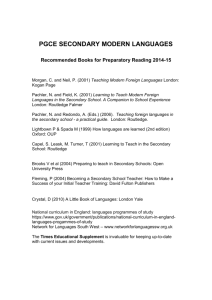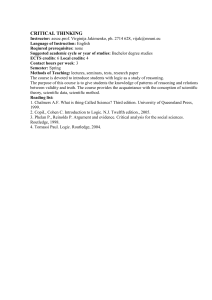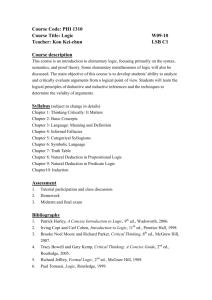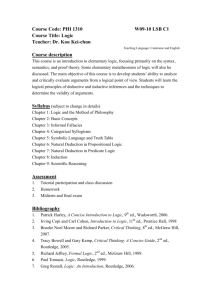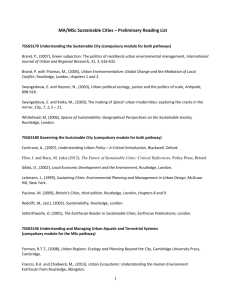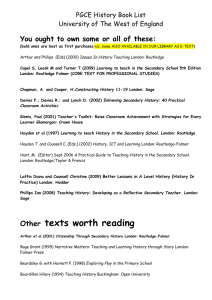Meaning of The Middle Class
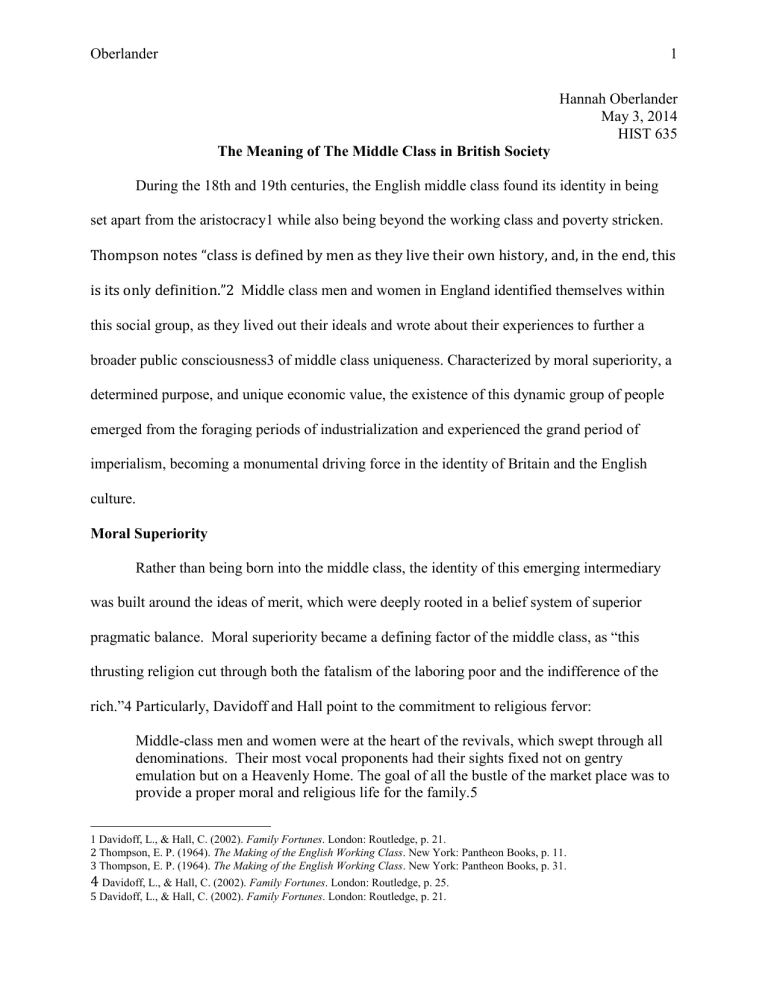
Oberlander 1
Hannah Oberlander
May 3, 2014
HIST 635
The Meaning of The Middle Class in British Society
During the 18th and 19th centuries, the English middle class found its identity in being set apart from the aristocracy1 while also being beyond the working class and poverty stricken.
Thompson notes “class is defined by men as they live their own history, and, in the end, this is its only definition.”2
Middle class men and women in England identified themselves within this social group, as they lived out their ideals and wrote about their experiences to further a broader public consciousness3 of middle class uniqueness. Characterized by moral superiority, a determined purpose, and unique economic value, the existence of this dynamic group of people emerged from the foraging periods of industrialization and experienced the grand period of imperialism, becoming a monumental driving force in the identity of Britain and the English culture.
Moral Superiority
Rather than being born into the middle class, the identity of this emerging intermediary was built around the ideas of merit, which were deeply rooted in a belief system of superior pragmatic balance. Moral superiority became a defining factor of the middle class, as “this thrusting religion cut through both the fatalism of the laboring poor and the indifference of the rich.”4 Particularly, Davidoff and Hall point to the commitment to religious fervor:
Middle-class men and women were at the heart of the revivals, which swept through all denominations. Their most vocal proponents had their sights fixed not on gentry emulation but on a Heavenly Home. The goal of all the bustle of the market place was to provide a proper moral and religious life for the family.5
1 Davidoff, L., & Hall, C. (2002). Family Fortunes . London: Routledge, p. 21.
2 Thompson, E. P. (1964). The Making of the English Working Class . New York: Pantheon Books, p. 11.
3 Thompson, E. P. (1964). The Making of the English Working Class . New York: Pantheon Books, p. 31.
4
Davidoff, L., & Hall, C. (2002). Family Fortunes . London: Routledge, p. 25.
5 Davidoff, L., & Hall, C. (2002). Family Fortunes . London: Routledge, p. 21.
Oberlander 2
The middle class found affirmation by assigning moral fault with both the class above them and the class below them. For the aristocratic culture, the middle class openly scorned their
“[a]ddiction to gambling,”6 living extravagant lifestyles, their “casual attitude[s] to debt,”7 and womanizing practices. For the lowly working class, the middle class looked down on women who had to work excessive hours in factories, to live in cramped living quarters, and to raise a family in these conditions. These lower class women were actually targeted by middle class women, so that they could teach them the higher moral principles of staying at home and influencing their children with religious intent.8
The middle class man and woman devoted themselves to maintaining a godly lifestyle through moral restraint and order believing that they themselves were capable of achieving success in these areas of morality by controlling their bodies. As Matthew Arnold offers in
Sweetness and Light : “religion says: The kingdom of God is within you ; and culture, in like manner, places human perfection in an internal condition, in the growth and predominance of our humanity proper, as distinguished form our animality.”9 Moral restraint, modesty, and humility were celebrated by influential writers of the day like Hannah More in her widely read Coelebs In
Search of a Wife
, who glorifies Miss Stanley as “governed by a simple, practical end, in all her religious pursuits. . . her predominant virtues [are] sincerity and humility.”10 The English middle class saw these moral ideas as a pure success and desired to evangelize other groups of people around the world so that they too could benefit from this superior moral code of ethics. Thus,
6 Davidoff, L., & Hall, C. (2002). Family Fortunes . London: Routledge, p. 21.
7 Davidoff, L., & Hall, C. (2002). Family Fortunes . London: Routledge, p. 21.
8 Valenze, D. M. (1995). The First Industrial Woman . New York: Oxford University Press, p. 11-12.
9 Arnold, M. (1890). Sweetness and Light . New York: T. Y. Crowell & Company, p. 3.
10 More, H. (1958). Cœlebs In Search of a Wife . New York: Derby & Jackson, p. 148.
Oberlander 3
“the emphasis on spiritual and personal qualities in missionary candidates meant that piety and spiritual purity were privileged over intellect.”11
Determined Purpose: Spheres of Influence
For the middle class man and woman, living out “individual salvation” through moral superiority was “only to be won by active struggle”12 through determined purpose. Samuel
Smiles in Self Help evoked a renewed sense of agency within the middle class mindset, urging them to command the influential potential within themselves:
The battle of life is, in most cases, fought uphill; and to win it without a struggle were perhaps to win it without honor. If there were no difficulties there would be no success; if there were nothing to struggle for, there would be nothing to be achieved.13
According to the middle class ideology, each man and woman had a sphere of influence in which
God had called him or her to impact for the kingdom of heaven. E.P. Thompson asserts that “the
Puritan emphasis upon a ‘calling’ was particularly well adapted to the experience of prospering and industrious middle class or petty bourgeois groups.”14 A middle class man’s calling differed greatly from a middle class woman’s calling as “masculine identity was equated with an emerging concept of ‘occupation,’ while women remained within a familial frame”15 of influence.
Middle Class Man
The middle class man’s sphere of influence resided in his active involvement in business, securing the financial stability and well being of his family.16 Valenze voices that “the model of the male breadwinner played an important role in the construction of new images of gender and
11 Price, R. (2008). Making Empire: Colonial Encounters and the Creation of Imperial Rule in Nineteenth-Century Africa .
Cambridge: Cambridge University Press, p. 19.
12 Davidoff, L., & Hall, C. (2002). Family Fortunes . London: Routledge, p. 25.
13 Smiles, S. (1958). Self-Help: With Illustrations of Conduct & Perseverance . London: J. Murray, p. 8.
14 Thompson, E. P. (1964). The Making of the English Working Class . New York: Pantheon Books, p. 37.
15 Davidoff, L., & Hall, C. (2002). Family Fortunes . London: Routledge, p. 30.
16 Davidoff, L., & Hall, C. (2002). Family Fortunes . London: Routledge, p. 16.
Oberlander 4 social relations . . . in the making . . . [of] the middle class culture.”17 Men of the middle class saw as their duty the procurement of moderate wealth as their active role within the family dynamic. Davidoff and Hall highlight a middle class man named James Luckcock whose
“purpose of business was not the avid pursuit of profit, but the provision of a ‘modest competency’ so that his family could live in a simple but comfortable way.”18 Luckcock set up his business in 1820 determined to follow his calling and “encourage[d] young men to be like him; responsible breadwinners whose manhood was legitimated through their ability to secure the needs of their dependents.”19 For a middle class man in British society, maintaining a family and creating the means for them to live in a home separate from his place of work with his family’s basic needs met was his duty and responsibility.
Middle Class Woman
When a middle class man could adequately provide for his family, his wife could stay at home, her proper place within society. Family Fortunes discloses:
The home was strongly associated with a form of femininity which was becoming the hallmark of the middle class . . . Ideas of a woman’s place were underpinned by legal, political and social practices which subordinated women.20
Popular reaction among women to the writings of authors such as Ellis, Martineau, and Loudon hailed these ideas with overwhelming idealization. This application of homebound femininity dawned a new age of “domestic values in middle-class culture.”21 Women read these idealistic personas and internalized feminine status as the bearers of influence22 within their homes. As the mother to her children23 and the wife to her husband, the middle class woman nurtured in the
17 Valenze, D. M. (1995). The First Industrial Woman . New York: Oxford University Press, p. 12.
18 Davidoff, L., & Hall, C. (2002). Family Fortunes . London: Routledge, p. 16.
19 Davidoff, L., & Hall, C. (2002). Family Fortunes . London: Routledge, p. 17.
20 Davidoff, L., & Hall, C. (2002). Family Fortunes . London: Routledge, p. 25.
21 Davidoff, L., & Hall, C. (2002). Family Fortunes . London: Routledge, p. 179.
22 Davidoff, L., & Hall, C. (2002). Family Fortunes . London: Routledge, p.170.
23 Davidoff, L., & Hall, C. (2002). Family Fortunes . London: Routledge, p.175.
Oberlander 5 haven of the home she managed, and she molded the thoughts of the ones she loved, indirectly having an impact on her husband’s business, the flow of their income, and the future of the world through her influence on her children.24
Economic Value
The English middle class was a group of practical, hard working people, who saw their economic work as a driving factor in their pursuit of moral success. Economic worth meant:
Accounts were continually cast up with God: had the year been ‘time spent in the pleasures of sin for a season or endeavoring to obtain the favour of the Shepherd of
Israel?’ . . . Religious belief thus supported a rational outlook and the active pursuit of commerce.25
The middle class ranks valued the economic notions of property rights, capitalism, and individual liberty.
Inspired by Smiles’ advice to a people of purpose, the middle class embraced the idea that “help from without is often enfeebling in its effects, but help from within invariably invigorates,”26 by applying this admonition to their conscious effort to become property owners.
For the middle class, property rights provided families the ability to set themselves apart from the lower working class—forced to rent from the upper class aristocrats, who inherited their property through birth. In addition, “the middle class . . . built on the concept of absolute property rights . . . often [as] more of an investment or asset to produce income for enlarging a business or farming operation.”27 Owning property gave the middle class a sense of worth both in their business dynamics but also in their family dynamics as they aimed to purchase plots for their homes that were separate from their place of work.
24 Davidoff, L., & Hall, C. (2002). Family Fortunes . London: Routledge, p.174.
25 Davidoff, L., & Hall, C. (2002). Family Fortunes . London: Routledge, p. 26.
26 Smiles, S. (1958). Self-Help: With Illustrations of Conduct & Perseverance . London: J. Murray, p. 1.
27 Davidoff, L., & Hall, C. (2002). Family Fortunes . London: Routledge, p. 20.
Oberlander 6
Capitalism was also a growing economic philosophy among middle class businessmen as
“the belief in the importance of new business practices and the benefits which they could bring to the whole community . . . found echoes in the language of political economy.”28 Middle class entrepreneurs—motivated by a sense of moral work ethic—embarked to set up businesses that would make a reasonable profit through efficiency, reliability, and the quality of their services.
Valenze notes “the outpouring of theoretical discussions of productive activity, Adam Smith’s
Wealth of Nations among them, marked a definitive acceleration in efforts to come to terms with
Britain’s economic power.”29 The middle class embraced a sense of economic duty as they not only bought property for themselves to run their businesses and build their homes, but also set a competitive tone in their business practices that stimulated capitalism within the economy from the ground up.
From these economic principles of property rights and capitalism, birthed a sense of individual responsibility and the ideas of independent liberty among the British middle class. A vibrant valuing of individualism became a concept burgeoning within the ranks of the middle class, rooted in the religious belief that “the most important task in life was the task of learning to walk with God.”30 William Cowper, an author well read by the middle class, “stress[ed] . . . individual liberty as residing in religious belief, showing that it was vital for it provided an alternative source of recognition and legitimation to the traditional association of honour with rank.”31 Thompson validates the middle class’ desire for individual liberty when he writes:
The sensibility of the Victorian middle class was nurtured in the 1790s by frightened gentry who had seen miners, potters and cutlers reading Rights of Man , and its fosterparents were William Wilberforce and Hannah More.32
28 Davidoff, L., & Hall, C. (2002). Family Fortunes . London: Routledge, p. 20.
29 Valenze, D. M. (1995). The First Industrial Woman . New York: Oxford University Press, p. 6.
30 Davidoff, L., & Hall, C. (2002). Family Fortunes . London: Routledge, p.163.
31 Davidoff, L., & Hall, C. (2002). Family Fortunes . London: Routledge, p.164.
32 Thompson, E. P. (1964). The Making of the English Working Class . New York: Pantheon Books, p. 57.
Oberlander 7
The middle class—full of diverse individuals—began to unite in various ways around the profound importance of individual liberty and its subsequent political implications. In fact,
“many came to feel that the fruits of liberty could not be guaranteed unless a man ( sic ) had a say in the political decisions which affected him and his family.”33 The future of British politics would eventually emerge from these ideals that stirred among middle class writings and discussions.
In 18th and 19th century England, middle class meant more than an income bracket––it was a way of life and an identity rooted in fundamental ideals. The middle class embodied an identity that men and women wholly embraced in an effort to define this class as unique, credible, and steady in the turbulent times they were living in. The middle class’ deep devotion to moral ethics influenced the way that they viewed their world, evoking a purposeful determination to pursue their callings within their gendered spheres and to economically contribute to society as a whole. Overall, the middle class found their identity in the ideals of religious devotion, their attention to living out their proper roles, and the recognition of practical purpose, economic duty, and individualism.
33 Davidoff, L., & Hall, C. (2002). Family Fortunes . London: Routledge, p.19.
